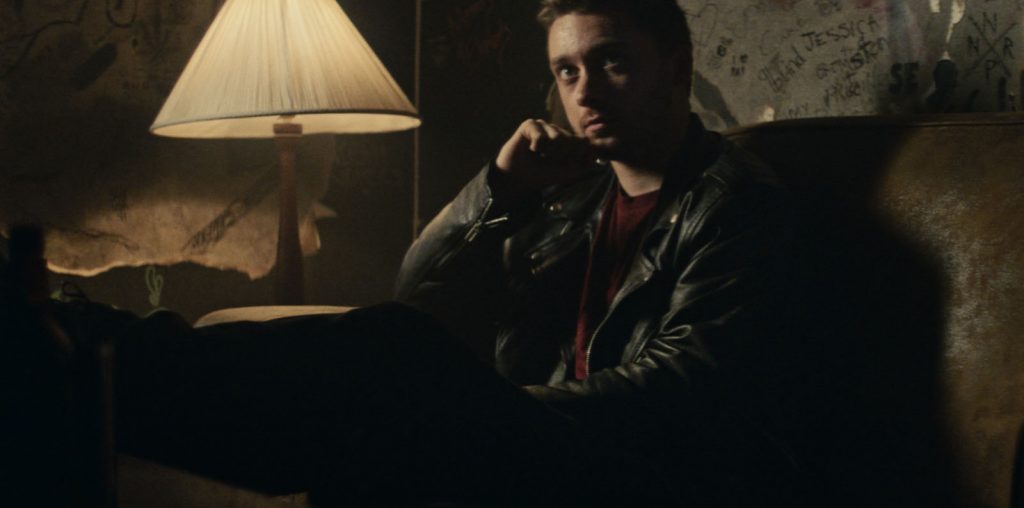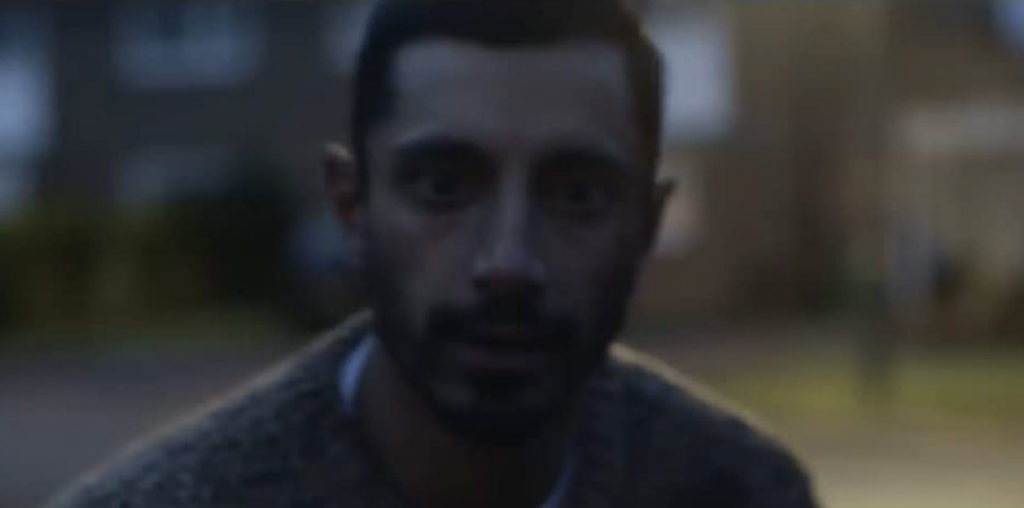
Ben (Wynn Reichert) is an alcoholic with a tragedy from his past ever-haunting his present. Coping with his on-the-wagon, off-the-wagon swings, he’s trying to survive without doing too much more damage to those around him. Will he finally find the strength to change his life, or will the daily struggle finally take him down?
Dimes on a Turn is an interesting dichotomy of amateurish and professional moments. The result is an uneven groove to the piece, as just as you’re getting into the story or the performances, something “off” seems to intrude. There are enough interesting camera moves to give the impression that someone truly was interested in the cinematography and composition within the frame, but those are coupled with shots where it looks like composition was entirely an afterthought.
For example, a particularly emotional sequence near the film’s end takes place in a restaurant. In some shots, the composition seems to fit the gravity of the conversation between Ben and his friend Amanda (Terri Minton). In other shots, it appears that the conversation is taking place between Ben, Amanda and an awkwardly placed potted plant, with ample footage of the ceiling; in another angle, Ben is barely in the frame while Amanda shares the majority of it with a bunch of empty booths and one guy sitting three booths away. It’s hard to take visually because you’ve seen enough evidence that the filmmakers know what they’re doing, so why are they making these awkward compositional choices?
Which leads me to another note, which is the treatment of the titles in the short. While the font, drop shadow or other title-centric additions shouldn’t make or break a film (and I’m not saying they do here), they can say quite a bit about the choices made in the production. In this case, they looked really amateur, like someone just got a new editing program and decided to toss on the titles as quickly as possible with a blending effect here or there. I’m not saying we need some epic font and title treatment, but when it looks tacky and out-of-place, it looks tacky and out-of-place. And while one shouldn’t judge a book by its cover, the feeling of the title treatment as a throwaway creative choice actually does make an impression on how one views the other awkward compositional choices I mentioned above.
Honestly, had it all been one-sided and awful, it probably wouldn’t have been as noticeable as when it is all so closely juxtaposed with its own successful moments. The film has moments where it seems to know better, and others where it just seems to do whatever. Maybe it’s a case of going with the best performances given the options from coverage, and maybe the best shot wasn’t the best performance, but that’s the only explanation I can think of for some of the choices in the film.
Distracting elements aside, however, Wynn Reichert does a wonderful job in his performance as Ben, an alcoholic who is probably easier to relate to than most we see in cinema. He’s got his problems and his issues with addiction, has a tragedy he’ll never forget, but unlike other films, he’s not a rambling mess dramatically striking out all the time. He’s coping, just barely, but he doesn’t let on to those around him about how bad it is. That, to me, is far more realistic. Other actors in the film do okay, but it’s Reichert’s film to carry, and he does it well.
In the end, Michael Lynch’s short Dimes on a Turn is a mixed bag. The story isn’t the most original, though its telling is more relatable than most. The film mostly suffers from an uneven balance between what appears to be truly thought-out visual composition and other moments that seem to be throwaway creative choices. There’s enough in this film to show that skill and talent exist in all involved, but the parts do not add up to a powerful sum.
This film was submitted for review through our Submission for Review system. If you have a film you’d like us to see, and we aren’t already looking into it on our own, you too can utilize this service.

